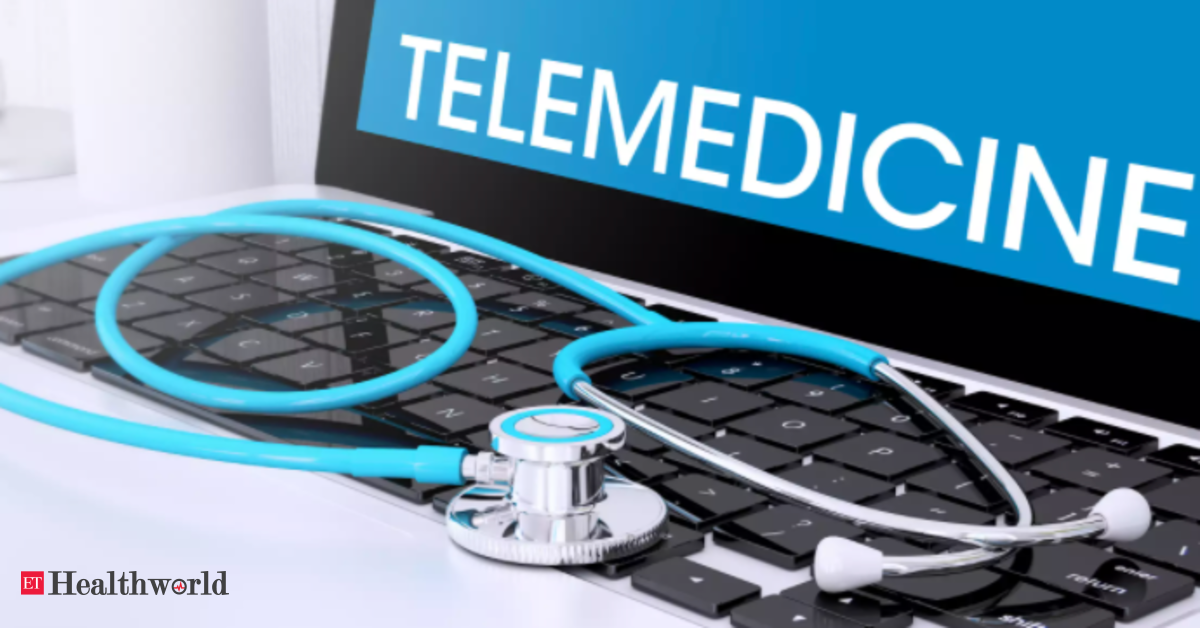Every industry in today’s world is touched by technological advances, and healthcare is no different. The healthcare industry has changed significantly over the years, most of it due to technological advances. When considering all sorts Digital Technology application in healthcare, which has six categories broadly Telehealth, Artificial intelligence And Machine learning (AI & ML), augmented and virtual reality, Internet of Things (IoT), 3D printing and NGS.
Telehealth Has reached the top of the list of priorities for any healthcare provider. This service is becoming one of the most important business channels for healthcare organizations. This service is in high demand, and the technology is well equipped to meet it. Health is a major concern in countries like India and Africa. These countries have large populations, and the proportion of healthcare facilities in the population is significantly lower. As a result, the only immediate solution is telemedicine, which can bring primary healthcare to every corner of the country.
There are various modules in this telehealth. Video consultation We have the most basic module. At the very least, counselors can have video conferencing with the patient remotely. The advanced part of the system is the connector for various medical devices. As a result, it helps us to enable self-care and reduce the cost of care. In fact, hospital admissions have dropped by more than 90%, and the cost of caring for these patients has dropped by more than 50%. Tele-health involves a number of patient engagement technologies, such as on-line patient appointments, on-line lab / imaging reports, and a patient follow-up system.
If we start giving details of the Patient Engagement System, we can think of an Internet of Things (IoT) enabled post care monitoring system. Wearable health monitors are rapidly evolving and can now collect real-time, medically accurate medical data. By pairing with well-designed mobile apps, users can view the analysis of their collected data and share it with their healthcare providers. Warnings may also be received in case of irregularities in vital signs such as heart rhythm, which may indicate a serious condition. This technology and the data provided can allow for timely diagnosis of patients, potentially identifying situations before they deteriorate and / or become life-threatening.
Today, Clinical trials Finding enough people to participate is challenging and yet, participants face the burden of frequent visits for tests and monitoring. Many clinical studies can benefit from wearing wearables as they make trial monitoring more accessible. In addition, the real-time and continuous data obtained for the parameter will almost certainly be more reliable and indicative of reality than measurements made in a clinical environment on a particular day and time.
Digital business Is quite mature in the retail sector. The healthcare sector is now enabling retail pharmacy and homecare businesses by copying the same application. The use of technology is prevalent throughout the digital healthcare system. However, this is the current state of the digital health system. We will now discuss the most advanced state of the digital health system where all of this is either in the R&D phase or only partially implemented.
Next Generation Sequencing (NGS) is another important digital technology application in healthcare. As a direct result of the introduction of NGS into laboratories, there has been an increase in the number of genes associated with human inherited disorders. This genetic predisposition can be detected by sequencing the patient’s genome. As a result, doctors can keep track of their patients before symptoms appear and necessary disease management strategies, such as preventive treatment, can be implemented sooner.
Gene sequencing It can also indicate how people react to different drugs. While NGS has been studied in a variety of healthcare contexts, oncology is where it is most advanced. Physicians can sequence tumors to match targeted drugs that will slow tumor growth. Targeted therapies can significantly improve disease management by reducing the likelihood of delays in treatment caused by ineffective drugs with potential unpleasant side effects. Doctors can monitor their patients before symptoms appear.
Last but not least, the digital healthcare is one of the most exciting apps in the industry. Artificial intelligence and machine learning (AI & ML). The AI / ML application is becoming increasingly popular in healthcare. AI can detect minor discrepancies or changes in patterns, which can help diagnose, track, progress and respond to treatment. This has the potential to help clinical judgments in time-sensitive situations or where there is a lack of expert knowledge, such as in rural or under-funded medical facilities.
AI can be used not only to evaluate standard radiological examinations, such as X-rays, computerized tomography (CT) scans, and magnetic resonance imaging (MRI), but also to diagnose and diagnose the disease. Is. Physical appearance of patients. Skin Vision is an application that allows users to regularly diagnose auto-skin cancer by analyzing images taken with their phones. Facial analysis using AI to detect genetic diseases shows significant promise in diagnosing patients earlier than conventional methods.
To meet the country’s demand for healthcare, it is important to promote the use of digital healthcare. These include a number of benefits such as improved access, reduced costs, more convenient care and saves the clinician time, to name a few. As such, digital healthcare solutions need to be increasingly implemented by providers, payers and employers.
Mascot Honest, Dy. CIO, Manipal Health Enterprise Pvt. Ltd.
(Disclaimer: The opinions expressed are those of the author only and are not required to be subscribed to by ETHealthworld. ETHealthworld.com will not be directly or indirectly responsible for any damages to any person / organization.)
.
Source link
